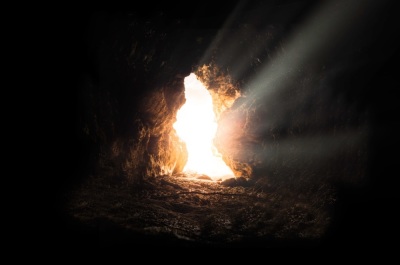Was Jesus in the grave for 3 days?

The celebrated church father, Augustine of Hippo, wrote, “What then is time? Provided that no one asks me, I know. If I want to explain to an inquirer, I do not know.”1 He made this observation after a lengthy discussion on the nature of time and eternity. While his discussion was more abstract than the question at hand, Augustine’s statement reminds us that the concept of time is complex. Still, we all operate with a pretty straightforward understanding of minutes, hours, days, weeks, and years.
But our way of counting time is not the only way. The Bible was written by authors from a variety of backgrounds, in a period and culture far different from ours. To be sure, none of these factors undermine the overall divine authorship of the Scriptures. On the other hand, recognizing these differences helps us understand what the authors meant—and did not mean—when they used everyday language to record when an event happened.
In fact, the New Testament is eager for the reader to understand that it is documenting events that occurred in space-time history, as we understand it in an everyday sense. Time markers abound in its pages, from when Jesus met the terrified disciples on the turbulent sea (Mark 6:48), to the time He was crucified (Matt. 27:45), to how long He was in the grave (Luke 9:22; 24:7; 1 Cor. 15:4).
As the texts above indicate, the biblical authors taught that Jesus was in the grave for three days. The Gospels tell us He was crucified on Friday and rose from the grave on Sunday (Mark 15:42–47; 16:1; Matt. 27:57–61; 28:1; Luke 23:50–56; 24:1; John 19:38–42; 20:1). But there seems to be a difficulty which surfaces when we compare these accounts of Jesus’ crucifixion and resurrection and our Lord’s words in Matthew 12:40: “For just as Jonah was three days and three nights in the belly of the great fish, so will the Son of Man be three days and three nights in the heart of the earth.” Critics allege that we cannot reconcile Jesus’ words with the Gospel accounts of His death, which place it at the “ninth hour” (Mark 15:34), or 3 p.m. in modern terms. If Jesus died at 3 p.m. on Friday and was raised early Sunday morning, how can we square those facts with Jesus’ statement in Matthew 12:40? The Scriptures seem inconsistent here. Skeptics have long seized on this seeming contradiction to discredit the doctrine of biblical inerrancy.
The difficulty is apparent, not real. Returning to our earlier discussion on the nature of time, we need to step back and recognize that the Jews of the first century counted days differently than we do today. According to their understanding of days, part of any day counted as a full day. Again, most of us do not mark time like this. If, for example, a newspaper report describes a certain person doing something for three days, we immediately think of three, twenty-four-hour days.
But once we understand how Jesus and the majority of Jewish people around Him understood days, the seeming contradiction vanishes. Jesus’ death at 3 p.m. on Good Friday counted as one day, His entombment all day Saturday counted as the second day, and His resurrection on Sunday morning counted as the third day. Therefore, Jesus’ prophecy in Matthew 12:40 and the facts of His crucifixion, burial, and resurrection are not at odds, but simply reflect the common way of understanding days in the first century.
As with many other so-called Bible contradictions, a bit of reflection and some understanding of cultural differences help us see that there is no inconsistency at all. We are once again reminded that the Bible is truth (John 17:17). We can trust it. The facts it records really happened, even if they were detailed in a way foreign to our modern sensibilities.
The more pressing question is, “Do we believe the Bible?” The futile search by critics to find Bible discrepancies like the one discussed here reveals an unbelieving heart. We must make sure such skepticism does not characterize our own hearts. Instead, “Let us hold fast the confession of our hope without wavering, for he who promised is faithful” (Heb. 10:23).
1. Saint Augustine, Confessions: A New Translation by Henry Chadwick (Oxford: Oxford University Press, 1998), 230.↩
This article was first published in Tabletalk, the Bible study magazine of Ligonier Ministries. Find out more at TabletalkMagazine.com or subscribe today at GetTabletalk.com.
Dr. Gabriel N.E. Fluhrer is senior pastor at the First Presbyterian Church in Chattanooga, Tenn. He is editor of Atonement and Solid Ground and author of Alive: How the Resurrection Changes Everything.




















